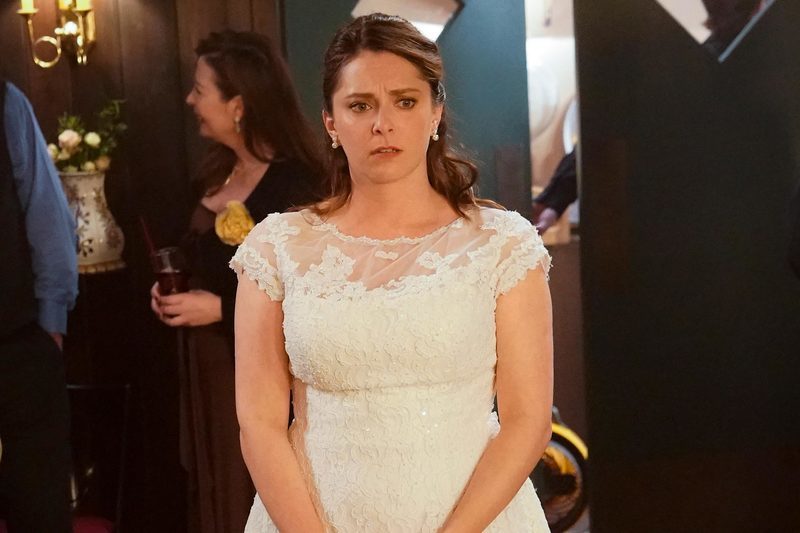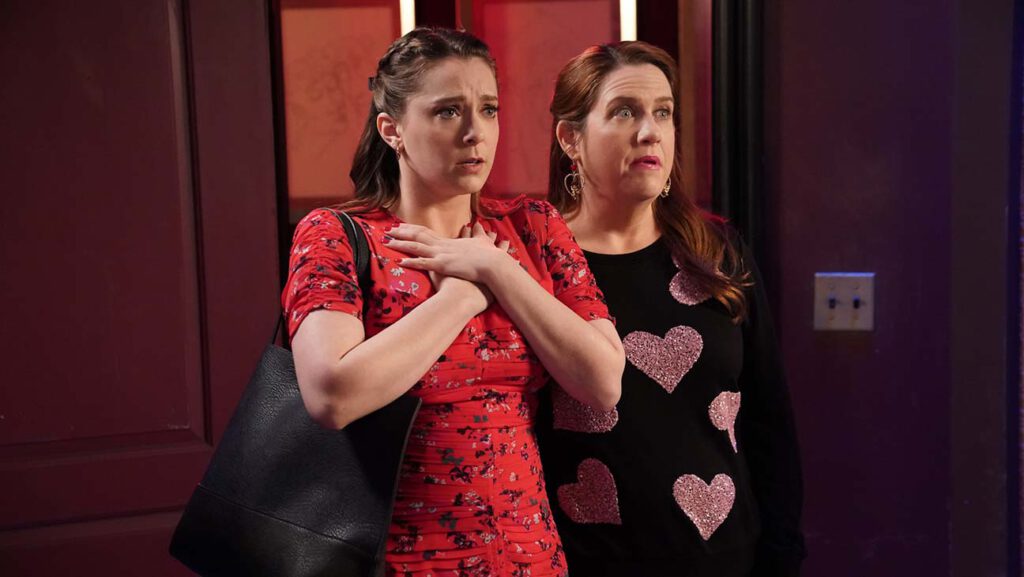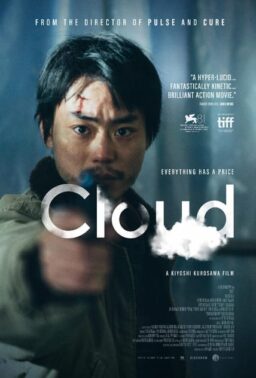In April, Rebecca Bunch sat down at a keyboard, and “Crazy Ex-Girlfriend” ended, with a perfect final moment in a bold, thoughtful, surprising finale for a bold, thoughtful, surprising series. The screen cut to black, and that was it for Rebecca. But moments later, Rachel Bloom walked on screen, there to sing Rebecca’s songs but do so as herself in “Yes, It’s Really Us Singing: The Crazy Ex-Girlfriend Concert Special.” And somehow, she and the cast kept going: two concerts at Radio City Music Hall, where they let the curse words, dirty jokes, and other such things fly. Then a few of them went and did it all again in London. It’s June now, and somehow, she tells me, it’s still not over—a blessing and a curse.
“Crazy Ex-Girlfriend” was never a ratings juggernaut. It’s a show that, to use one very specific example, produced an hour-long CATS parody about having a yeast infection. It also allowed its protagonist to be endearing and awful, kind and cruel; it let her make progress, then backslide, over and over again. Few shows have swung with quite so much ambition, running with its idiosyncrasies and never questioning whether or not they were valuable. Few have even attempted to create a portrait of a person with mental illness that was realistic, hopeful, and brutally honest. The writers, producers, directors, musicians, and actors involved are all worthy of recognition and celebration. Rachel Bloom falls into all of those categories.
What’s life like after you spent four seasons doing all the jobs at once? How do you say goodbye to a show that keeps adding additional goodbyes to its end? RogerEbert.com wanted to know these things, and in spite of a still-crowded schedule that now includes preparations for another round of live shows, she made time to tell us.
It’s been a couple of months since the finale aired. How does it feel? How does it feel to be properly done?
It’s really cool. I mean, we did something that TV shows don’t normally do, where we ended this narrative show, and then we made a big concert special while we were still editing the narrative show, and then we took a break, and then we did the Radio City shows, which felt like a whole other thing. And I just came back from London, which also felt like a whole other thing. So there have been a million goodbyes at this point, a million false endings, of a kind.
And while I was on vacation in Italy, getting ready for Radio City, and every night after that pretty much up until London, I’d have a dream. We were in the writer’s room for season five, and I’d say, ‘Wait a second. Wait, guys, we only ever planned on four seasons, we ended the show,’ and everyone else would say, ‘Nah, shut up. Shut up. We’ve got to write season five.’ And every night, I’d have a dream of being back at work. I haven’t had the actors’ nightmare of being on set and not knowing what the words were, but I’ve had the dream of being back in the writers’ room, because this is when we would be writing the new season.
What do you think that means?
I think it means that my body and brain were confused. My body stopped, the show was over. And then it wasn’t. And then the show was over, and then it wasn’t, and then the show was over, and then it wasn’t. So I think that all the bringing it back was, in good ways and bad, confusing my brain. I was with Pete, [Gardner, who played Darryl Whitefeather on “Crazy Ex-Girlfriend”] in London, and we were drinking after the second show. He was saying, “There’s no other show that’s been”—he did this gesture with his hands, up and down—“And now we’re up.” The thrill of Radio City, and then the London shows … it was just this unbelievable high that you can only get from live performance.

Has that been a positive thing, the ups and downs and multiple goodbyes?
I think it’s great, actually. I think it’s really healthy. I kind of feel like it’s how I wanted to feel graduating high school, where you want it to [linger], but you also almost want to be over it. I think that now we’ve done so much—and I’m going to be continuing to do some of these songs in concert for the rest of my life—but I’m fine for now. I’m fine with moving onto other things and taking a break. I’s been very intense, but I think it was actually a really healthy way to say goodbye.
And now it feels done.
It does, it feels done. You know, the weird thing is that we are finally getting ready to release the final album of all the season four songs. We haven’t done that yet, because we want to put some cut songs on there, and there’s a music video that was filmed in season four that was cut for time that I want to put on my YouTube channel, to promote the album, and because it’s also it’s a really great song. And I still haven’t sent my notes in to the editor, so weirdly, I’m actually still not done supervising the edit of a music video for “Crazy Ex-Girlfriend.” And it’s one that we filmed, at this point, 10 months ago. So that’s a little weird. But I mostly feel done. It’s so great to be taking this interview in my own house, in my own clothes. I’m not covered in makeup, it’s not after getting up at 5:00 a.m. It’s good.
What episode was the song cut from?
Episode five, “I’m So Happy For You,” which is the title of the song.
That’s exciting, that there’s still a little piece of “Crazy Ex-Girlfriend” that’s yet to be seen.
Yeah! And it’s plotty, too. So it’s cool.
In the concert special and in the live shows—I don’t know if this happened in London—there’s this moment that really stuck with me, and it’s happened more than once. It’s the experience of hearing people sing “You Stupid Bitch” with you, but with such joy and abandon. It’s a painful song, but such a jubilant, communal experience. What is that like for you, and where do you think it comes from?
What’s interesting is that songs really take on new life when they’re done live. In talking to you, I’m realizing something. When we put together these live shows, it was always important for us to not just do the songs as we did in the music videos version of the songs. It was important that we add an element for the stage. So for instance, in the video for “The Moment Is Me,” it’s Vella [Lovell] having her single moment with two back-up dancers. That was the TV show. So what’s a way to tell the story of that song that’s unique to a live show and to us as a cast? Hence, in the concert special, having David Hull be the single backup dancer who insisted on taking the spotlight, which is one of my favorite things, ever. Then at Radio City, we turned it into a Rockettes number, where we were the Rockettes. So it’s always about reimagining those videos.
But, what I’m realizing is that with the dramatic songs—specifically with “You Stupid Bitch” and “A Diagnosis”—the irony and nuance of those songs goes away, and is replaced by a sense of belonging. There’s just this cheering on “You Stupid Bitch.” That’s every time I sing it, even though it’s a song of self-hatred. It’s not a prideful song. It’s a self-flagellating, highly unenlightened song. Similarly, “A Diagnosis” is a song kind of rooted in delusion because she says, “Who says there isn’t an easy fix?” But yet part of that song is this highly relatable, give me my tribe, I want to know where I belong kind of thing. So the irony of those songs kind of goes away, to be replaced by something else, which is quite interesting as a performer. In the moment, it’s always a question of how much I’m going to play the part of this song that’s rooted in the character not knowing herself, and how much I want to just sing as myself, talking to the audience.
So what’s the balance? How do you find it?
It depends. I always want to be true to the songs. With “A Diagnosis,” there’s definitely a more empathetic approach to “Who says there isn’t an easy fix.” I play less of the foreshadowing element, and more earnestly just sing that line. Because there are people in front of me who are singing that song along with me. They’re taking the part of the song that they relate to, because they’ve felt those things. I have to acknowledge that in my performance of the song, and so the songs and really take on new life.
In looking back, is there a song that feels like the song of the show to you?
It’s probably still “You Stupid Bitch.” It’s kind of the best example of how we’d take these nuanced feelings we’d have and look at them through the lens of how a musical theater kid would see it. And also the lyrics: It’s just about being very, very honest about what being down on yourself feels like, let alone when you are someone who is depressed, or having mental health issues. “The Darkness” I see as a companion to it, because the character is much more self-aware. When I’ve done that in concert, the feeling of singing that song, it’s much more honest. I’m much more myself, singing. I’m much more myself, being in an okay space, singing about the darkness, because Rebecca at that point is back in her right mind. She’s been through therapy. So it’s more of a retrospective song.
TV has come a long way in the way it depicts mental illness, and “Crazy Ex-Girlfriend” has been a big part of what. What do you think the next step is in making sure that those stories are being told in a way that’s both honest and responsible?
I think that it’s honesty that’s really the name of the game. I think it’s about trying to continuously find stories that haven’t been told. Where are the gaps? It’s coming up with new ideas for film, TV—it’s kind of like being on “Shark Tank,” where you think, what’s the need that needs to be filled? What’s something I haven’t seen that I know to be true about life? It’s about embracing those narratives, and working so people feel comfortable writing their stories and being authentically themselves, and then giving them money in whatever capacity to make those stories.
The lens that we’ve had for so long is a kind of aspirational, American, straight, white male lens—and I say aspirational because I think that a lot of men don’t write honestly about how they actually feel about things, they write aspirationally. So as a writer, it has be about what hasn’t been said. It has to be about new stories.
You’re at the end of the last FYC campaign for “Crazy Ex-Girlfriend.” There’s been some conversation on social media over the last couple weeks about the difficulty of recognizing worthy, deserving shoes when the money’s not there to make those campaigns happen. What has that experience been like for you, now that you’re nearing the end of it?
You know, it’s hard. I go back and forth between saying, “Oh, I don’t care,” and then I see the treatment other shows get because they have money, and suddenly I really do care. It’s difficult. It’s really difficult. I know our show is good.
It is.
It is. And I know that we’ve done something on the show that’s never been done on television. It’s the only time I get defensive, or feel like I have to defend the show. I know for a fact—taking myself out of the equation—I know that our ensemble cast, the recurring, the regulars, the guest stars, are among the most hard-working, most talented people to have ever been in a television show. But we don’t have the money for these campaigns. It feels weird to say that, because it seems like I’m saying,” Oh, if we did have the money, we’d crush everyone.” I don’t know. I don’t have enough perspective on my own show to compare it to other shows. But what I am saying is that we don’t have a fair shot when it comes to money.
We’re also at the mercy of how much money CBS Studios wants to put into a show. And they try, they try so hard. Our publicists are great. It’s just that we don’t have the Amazon, Netflix, Hulu money.
Is that true in all the categories, do you think?
Well, we’re definitely recognizing art. But when it comes to the major categories, it’s also money. I mean, if you want to talk about good acting, Justina Machado’s work on “One Day At A Time” is some of the best acting I’ve seen anywhere. Crying at the drop of a hat isn’t necessarily the mark of a good actor, but fuck, she can cry at the drop of a hat. I mean, she’s unbelievable.
And really, the other thing is that some of the best acting work on television is being done by people who are on not-good shows, because the hardest job as an actor is justifying bad writing. So if we’re really looking at who is doing the most exemplary work, I think if it’s kind of a cheat when you’re on a well-written show, because when you get these acting awards, it’s also the quality of the writing. So much of it has nothing to do with the work that you’ve done.
Does looking at it as a producer shape your view?
Yeah, I come at it from a different point of view, because I’ve been on the Emmy campaign strategy calls, which I think a lot of other actors aren’t on. What makes me grateful is that smaller categories, like songs and choreography and even editing, those are juried. That’s a group of peers. So there’s a sense of a fairer shot. But I’m ashamed that I care so much.
Well, it’s a thing you helped to create, it would be hard not to take a little personally.
Yeah, I feel a little helpless. Look, to pat myself on the back fully: to be co-creating a show, and co-writing the songs for it, and writing the scripts for every song, and supervising the edit, and singing the songs, and being in the show, and it’s a musical about mental health—I can’t say that there’s anyone else who’s doing that right now on television. And these cable shows, a lot of them get to write, and then film, and then edit. And we did it all at once. But life isn’t fair. And I have so many other things to be grateful for. So that’s what I don’t like. I don’t like the headspace that awards put me into. I don’t think anyone does. But it is what it is.
Is that where “I Don’t Care About Award Shows” came from?
That was an Emmy campaigning tactic. We thought, ‘How can we make a mark on the Emmys? We don’t have a lot of money. What if Rachel made a video?’ And I thought, ‘Oh, well, I’m even ashamed that we’re having this conversation.’ And that’s where the tone came from and it didn’t work. But I think it’s a good video that actually shows what I’m talking about: The feeling I think I should be having, and then the desperation, the “of course I care,” coming through in the ending. I mean, that is how I feel about the Emmys.












